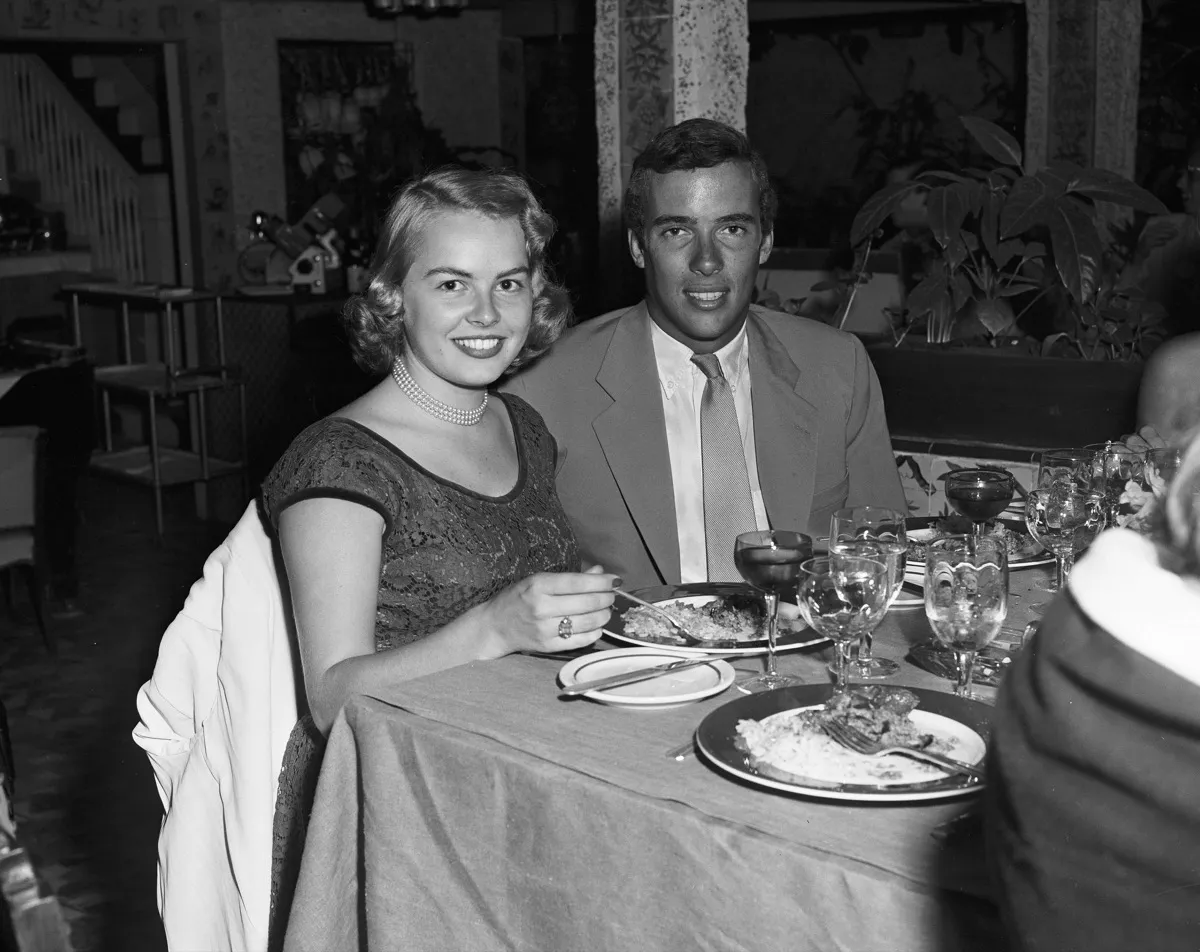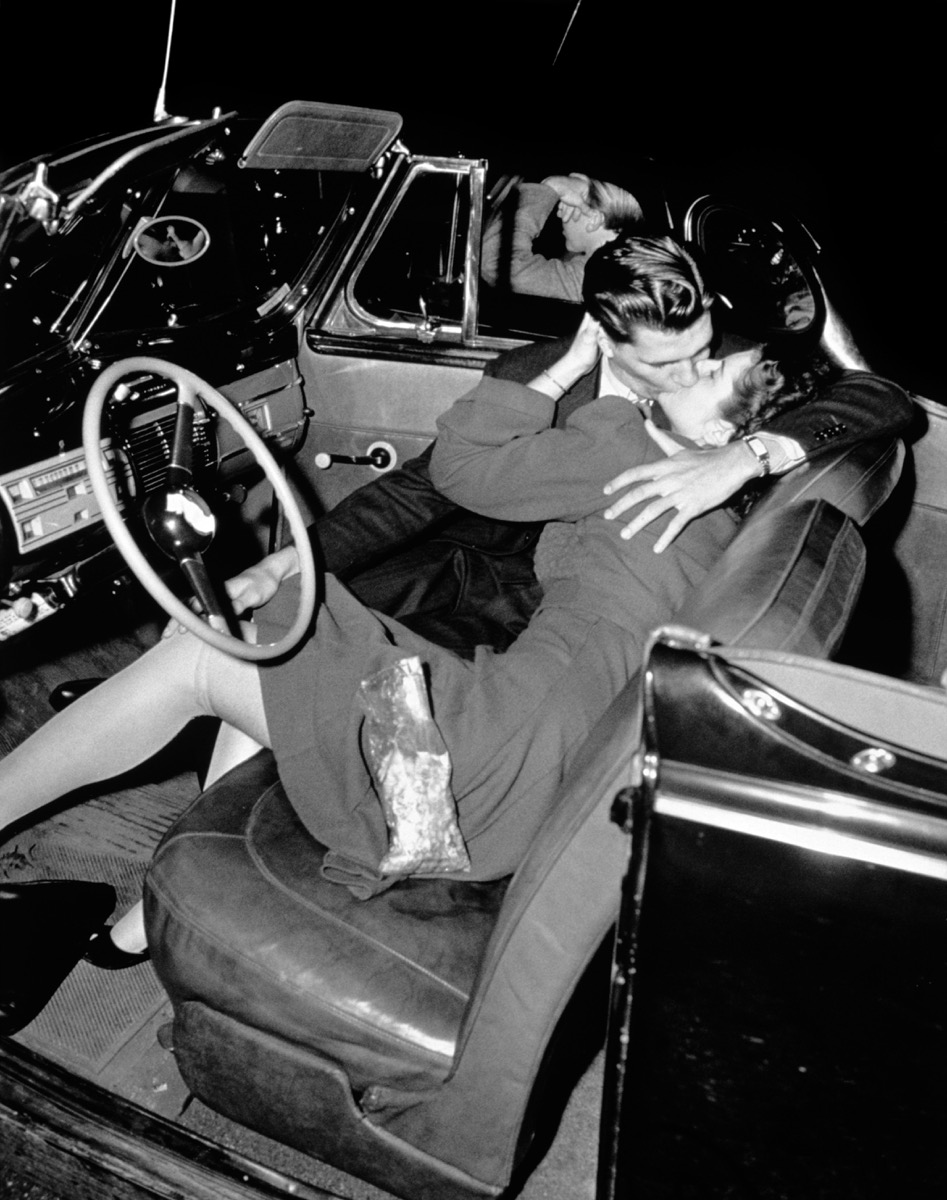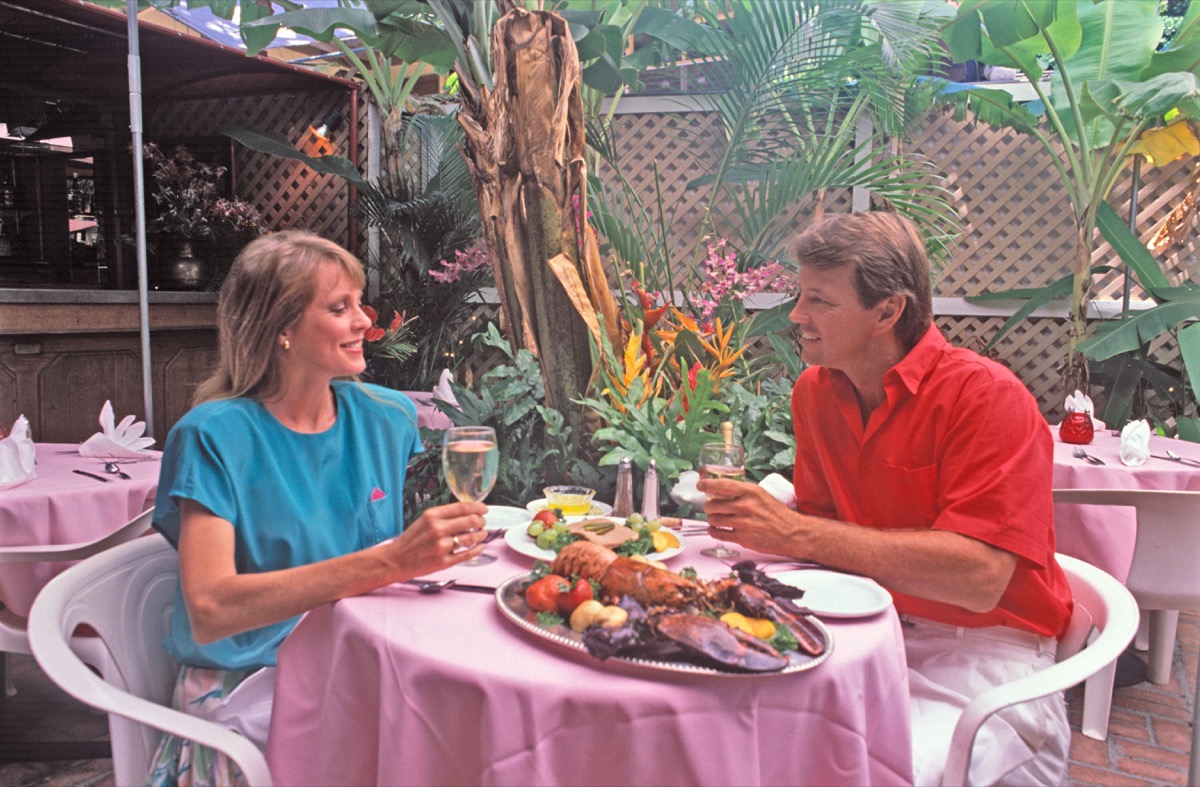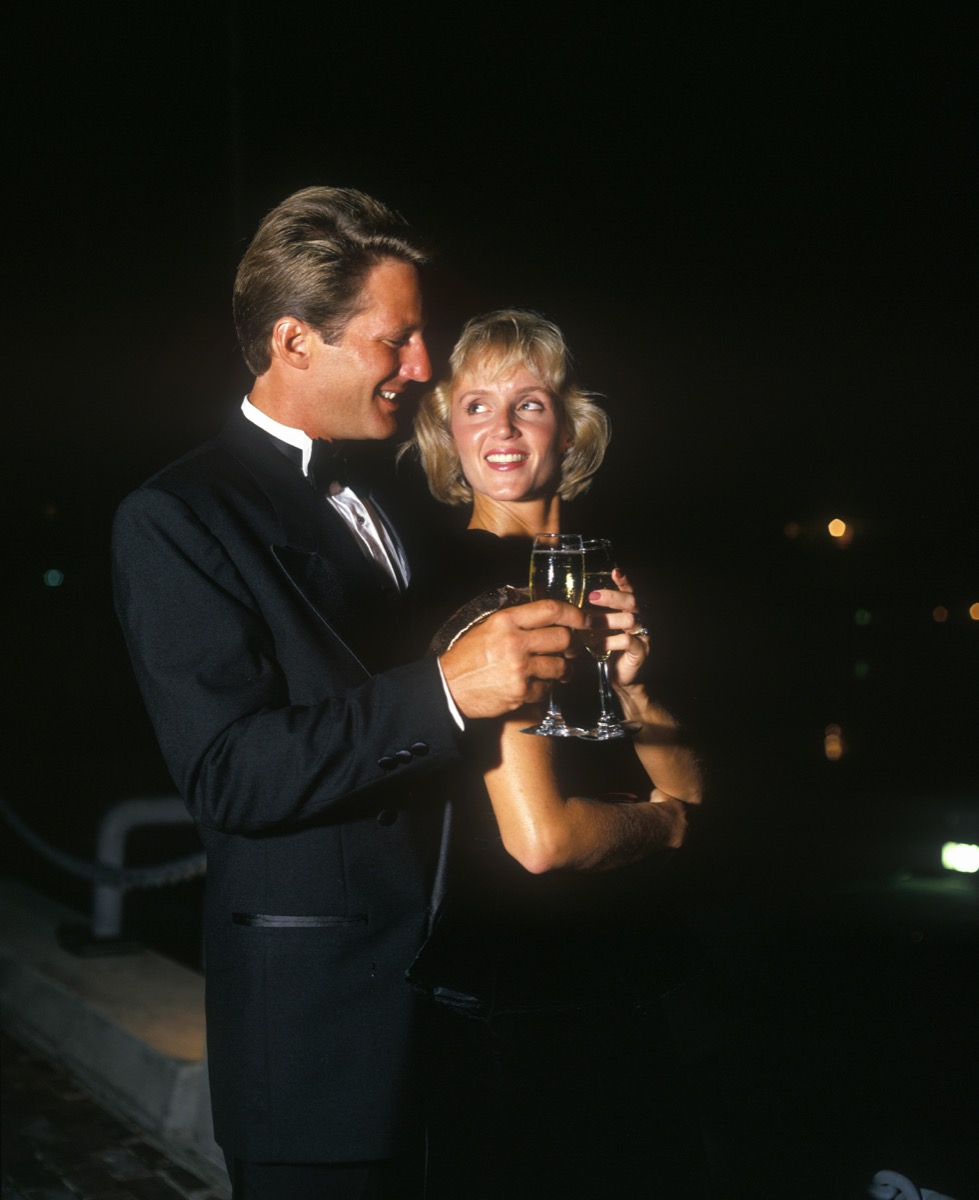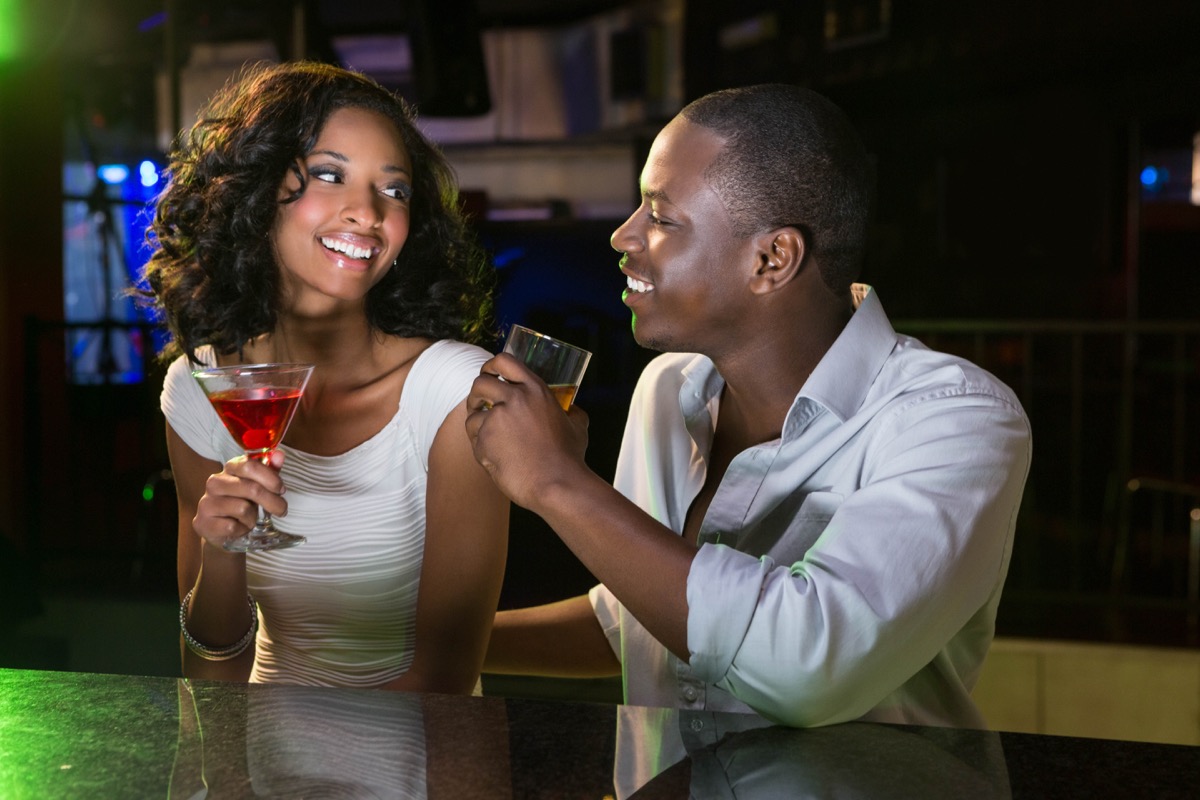A Friday Night Flick: $0.98 for two tickets Steak Dinner: $4.50 for two sirloin steaks Total: $5.48 ($48.43 when adjusted for inflation) Today, if you took your date to Keens Steakhouse—one of the most famous steak joints in New York City—a sirloin would set you back $56 per person. In the 1940s and 1950s, however, that same dish at the same restaurant would cost you just $2.25. And considering the price of a meal at a fine dining establishment back in the day, there was always money left over after dinner to buy movie tickets. And for more nostalgia, check out 100 Slang Terms From the 20th Century No One Uses Anymore. A Packed Picnic: $1.30 for two chicken salad sandwiches, 20¢ for two sodas, $1.34 for two beers, and 30¢ for two slices of apple pie Total: $3.14 ($33.78 when adjusted for inflation)ae0fcc31ae342fd3a1346ebb1f342fcb Back in the mid-1950s, a proper outdoor picnic—we’re talking basket, blanket, and all—was an ideal lunch or dinner date option. According to Edith Barker’s 1955 Silver Jubilee Super Market Cook Book, popular dishes to serve at a picnic during this time included broiled ham, apple pie, baked potatoes, mixed vegetable salad, hot rolls, and smothered onions. And though a meal in the park isn’t quite as posh as a dinner at a steakhouse, taking the time to prepare a multi-course meal for your sweetheart was just as special. Definitely worthy of the “big date” designation. Movie Night at the Drive-In: $1.40 for two tickets, 20¢ for two sodas, 40¢ for two milkshakes, and 10¢ for popcorn Total: $2.10 ($18.12 when adjusted for inflation) With the film industry booming, the ’60s saw the popularity of drive-in movie dates explode. According to Time, couples during this period had approximately 4,000 stateside drive-in theaters to choose from for their date destination. The best part about drive-ins is that, though they were considered the date spot in the ’60s, going to one was as wallet-friendly an activity as you were likely to find. Through the decade, ticket prices never exceeded $1, and even concessions like malted milks and hamburgers were just a quarter. And for more things to bring you back to yesteryear, check out 100 Photos That Kids Born After 2000 Will Never Understand. Sushi Dinner: $8.50 for two three-course meals Drinks at the Bar: $2.80 for two martinis each Total: $11.30 ($91.55 when adjusted for inflation) If you wanted to impress your date in 1965, you didn’t head to your local French restaurant—you made a beeline for one of the sushi spots that were starting to emerge on the restaurant scene. “American [soldiers] reportedly developed a taste for Japanese food—including sushi—while stationed in Japan,” noted Jonas House in a recent Food and Foodways article. After two Japanese locales opened in New York in 1963, food journalist and restaurant critic Craig Claiborne declared Japanese food the next big thing. And it was for a while. Hibachi Dinner at Benihana: $16 for two steak and vegetable hibachi entrees and $7.90 for two “Banzai” cocktails Aretha Franklin Concert: $16 for two tickets Total: $39.90 ($266.82 when adjusted for inflation) Nowadays, many of us have seen a burning onion tower or a shrimp tail get tossed into a chef’s hat. But in the ’70s, diners were truly enthralled by the magical and novel concept of hibachi-style cooking when it entered the U.S. market in the late ’60s. “The new Benihana Palace is excellent on many counts and its principal fault lies (happy for the management) in its overriding popularity,” Claiborne wrote in The New York Times of the then-new West 44th Street location in 1970. Needless to say, Benihana and other hibachi restaurants were the big date spots during this time period. And if you took your date to a hoppin’ concert after dinner—Led Zeppelin or Aretha Franklin were always a safe bet—then you were pretty much guaranteed a second date. Dinner and a Show at a Dinner Theater: $25.90 for two all-inclusive tickets Total: $25.90 ($125.66 when adjusted for inflation) If you needed to impress your date in the 1970s, you didn’t just take them to the movies—you splurged on dinner theater tickets. As the name suggests, dinner theaters were restaurant-theater hybrids that included both a meal and entertainment with the price of admission. As one writer at the New York Times described in 1973: “People can eat, drink, smoke, and watch a show—all under one roof, and all for one price except for the liquor.” Some dinner theaters were better-known for their food than for their entertainment; others hosted plays with such prominent actors that the food was more of an afterthought. In any case, dinner theaters were “an entirely novel, and highly lucrative, theatrical phenomenon,” The Times stated. They provided a fun date night option for couples in the 1970s. Dancing at the Roller Rink: $7 for two pairs of rental skates for two hours Dinner at the Diner: $7 for two cheeseburgers and $2 for two orders of fries Total: $16 ($51.98 when adjusted for inflation) Roller rinks reached peak popularity in the ’70s and ’80s. “In the 1970s, disco roller rinks were hip,” wrote Steve Dale in a 1987 article for the Chicago Tribune. “Today, videos have helped to recapture that same thrill that grandma had gliding on her skates to waltzes.” During this decade, couples would flock to rinks to dance to disco music and shake their groove thangs, and then refuel with dinner. This type of unique date would almost guarantee you another rendezvous. And for more interesting information, sign up for our daily newsletter. Night at the Opera: $100 for two tickets A Fancy Italian Dinner: $2.95 for crostini, $9.95 for chicken piccata, and $10.95 for veal parmigiana Total: $123.85 ($296.74 when adjusted for inflation) Though Italian food was available in America throughout most of the 20th century, it wasn’t until the 1980s that Italian establishments became Americans’ go-to date spots. Starting in the ’80s, “risottos and wine sauces from the north [of Italy] became fashionable, and provided a class marker between the pastas and pizza of the south,” National Geographic notes. At the same time, opera was seeing a resurgence—you can thank this decade for such notable works as Nixon in China, The Mask of Orpheus, A Night at the Chinese Opera, and Un re in ascolto. With that high regard for ragù and penchant for Pavarotti, the ideal fancy date night in 1985 was pretty expensive: just under $300, when adjusted for inflation. Dinner at Legal Sea Foods: $60.85 for two 1.5-lb. steamed lobsters and six oysters National Tour of Cats: $140 for two Orchestra seats Total: $200.85 ($337.79 when adjusted for inflation) Ah, Cats and Legal Sea Foods. Takes you back, doesn’t it? Many things contributed to Legal Sea Foods’ success in the ’80s and early ’90s, including the restaurant’s presence at the first inauguration of President Ronald Reagan in 1981 and the Today Show naming it the “Best Seafood Restaurant in America” in 1986. Similarly, the musical Cats was catapulted into the spotlight in the ’80s and stayed there through the ’90s as theater critics at the time raved about its ability to “[transport] the audience into a complete fantasy world that could only exist in the theater and yet, these days, only rarely does.” In Boston, where Legal Sea Foods called home initially, you would’ve been able to catch the national tour of the musical after chowing down on New England’s finest. Sounds like a dream date. Fancy Dinner: $80 for two four-course prix fixe dinners and $32 for a bottle of champagne Total: $112 ($189.43 when adjusted for inflation) While some people in the ’90s were high-tailing it to Blockbuster to rent the last copy of Pulp Fiction to impress their dates, those who really wanted to show that special someone a good time were enjoying the kind of classy meal (and champagne, of course) featured in their favorite 1990s romantic comedies. Inspired by films like Pretty Woman to You’ve Got Mail, an elegant dinner out was the epitome of a “big night out.” Bonus points if you wore gloves! Hanging at the Hookah Lounge: $20 for two hookahs and $24 for four cocktails Total: $44 ($65.89 when adjusted for inflation) “While cigarette use has seen a steady decline in recent years, hookah (water paper) use has rapidly increased in popularity,” reports a 2015 study published in the journal JMIR Public Health and Surveillance. Hookah lounges became a national phenomenon in the ’90s and early 2000s, making these smoky spaces the place to go for an intimate date night. In fact, one reporter in 2003 called hookah lounges “America’s trendiest gathering places.” And for more 2000s nostalgia, check out 23 Celeb Red Carpet Photos From 2000 You Have to See to Believe.
